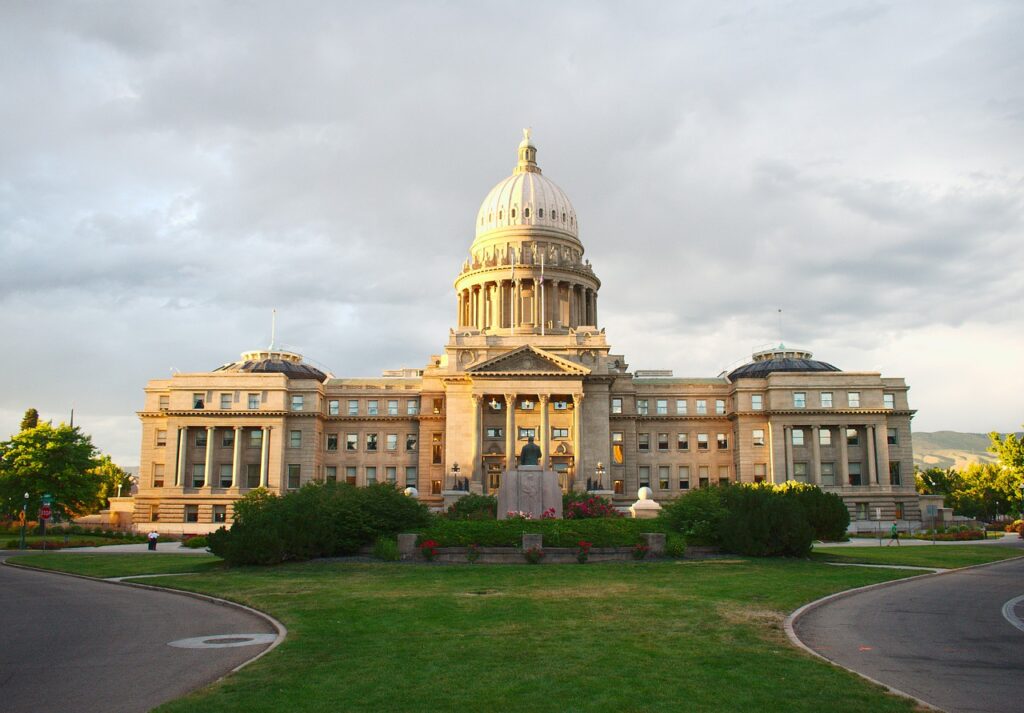FILE PHOTO – Idaho State Capitol in Boise, Idaho
BOISE, Idaho (AP)
GOV. LITTLE SIGNS BILL TRIMMING HIS POWERS
Idaho Gov. Brad Little has signed four watered-down versions of previous bills that he vetoed on limiting a governor’s powers during declared emergencies such as the coronavirus pandemic.
The Republican governor signed them Monday and took the rare step of sending transmittal letters to the Legislature that explained his reasoning. Little in the letters wrote that the bills he signed were unlike the bills he vetoed because they do not impair a governor’s ability to protect Idaho residents.
In one of the new laws, emergencies involving 12 or more counties and lasting longer than 90 days would require the involvement of the Legislature.
BILL SIGNED TO HALT PRES. BIDEN’S MOVES ON GUN LAWS
Idaho Gov. Brad Little has signed legislation aimed at thwarting half-dozen executive actions taken by President Joe Biden to combat gun violence.
The Republican governor on Monday signed the bill prohibiting Idaho government entities from upholding Biden’s March executive actions. Biden’s orders include a crackdown on ghost guns. They are homemade firearms that lack serial numbers used to trace them and are often purchased without background checks.
Biden also tightened regulations on pistol-stabilizing braces like the one used in Colorado in a shooting in March that left 10 dead. Biden wants laws to temporarily bar people in crisis from accessing firearms.
FEDERAL RESCUE MONEY USED FOR SEWER, WATER, BROADBAND
Idaho will receive $1.1 billion in the latest round of coronavirus relief money in two separate payments that could be used to substantially bolster the state’s water, sewer and broadband infrastructure.
The U.S. Treasury Department on Monday launched a $350 billion program that’s part of President Joe Biden’s $1.9 trillion coronavirus relief package that became law in March. Administration officials say payments could begin going out in the coming days.
In addition to the money provided to the state, Idaho’s nine largest cities will get a total of $124 million, while 190 cities with populations of typically less than 50,000 will get $108 million. Counties will get another $314 million.

